Category:
May 8, 2023
Elopak Sustainability Report 2022 – protect our planet
The year 2022 was a truly turbulent year for the entire world. Despite the challenges of the past year, our commitment to sustainability remains unwavering. We welcome the ambitious climate targets of the European Union, as well as the 23 global targets for biodiversity which world governments have now agreed on at the COP15 biodiversity conference in Canada. They are important to drive change and require tangible actions.
Our sustainability approach is based on three pillars: people (care for employees), planet (preservation of natural resources) and profit (secure financial basis). The focus is on reducing emissions by 2050.
Our annual sustainability report provides information about our progress and goals with regard to the economy, ecology and social issues.
Here is an overview of the most important results.
Sustainability:
The way we work:
As a global corporation, Elopak is committed to work systematically with all aspects of sustainability, from the wellbeing of our employees, initiatives to mitigate climate change, responsible sourcing of raw materials, to responsible business conduct, upholding the highest ethical standards in all our business operations.
Being sustainable means finding the balance between what is good for the people, the planet and the profit.
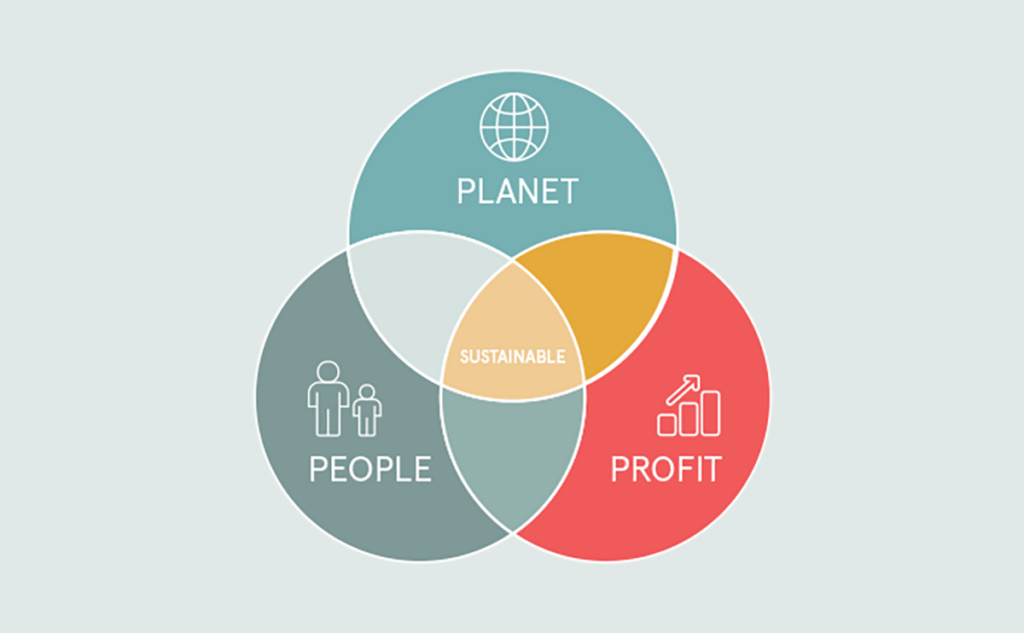
Our sustainability targets:
Our sustainability targets remain the same as last year, safeguarding our long-term commitments to key global challenges such as climate change, scarce natural resources, diversity, safety and responsibility in supply chains.
1.
Elopak offers a top-quartile motivating workplace by 2025
2.
85% of employees have individual targets and documented competence development plans
3.
Target the same distribution in gender diversity across all hierarchical levels
'Sustainability is deeply anchored in our culture, strategy, management, ownership and our employees. It is reflected in the products we develop and offer, which continuously prove to be among the most environmentally friendly packaging on the market. Responsible business conduct and transparency is top of mind throughout all of our operations in every market.'
MARIANNE GROVEN, SUSTAINABILITY DIRECTOR AT ELOPAK
Renewability
Renewability is important to Elopak, because we are a part of this world, and we have an inherent responsibility to maintain the scarce resources of our planet.
Since our primary raw material originates from the forests, we take responsible forest management very seriously.
Elopak has an ambitious goal of 100% renewable or recycled content materials in our cartons on the European market by 2030.
Naturally renewable – maintaining living and viable forests
Elopak sources all of its paperboard from verified and controlled sources. In 2022, we sold 60% FSC®-labeled cartons (79% of the sales volume in Europe) (FSC® C081801). While the number in Europe is increasing, global numbers decreased slightly as the new markets have less demand for FSC-labeled cartons.
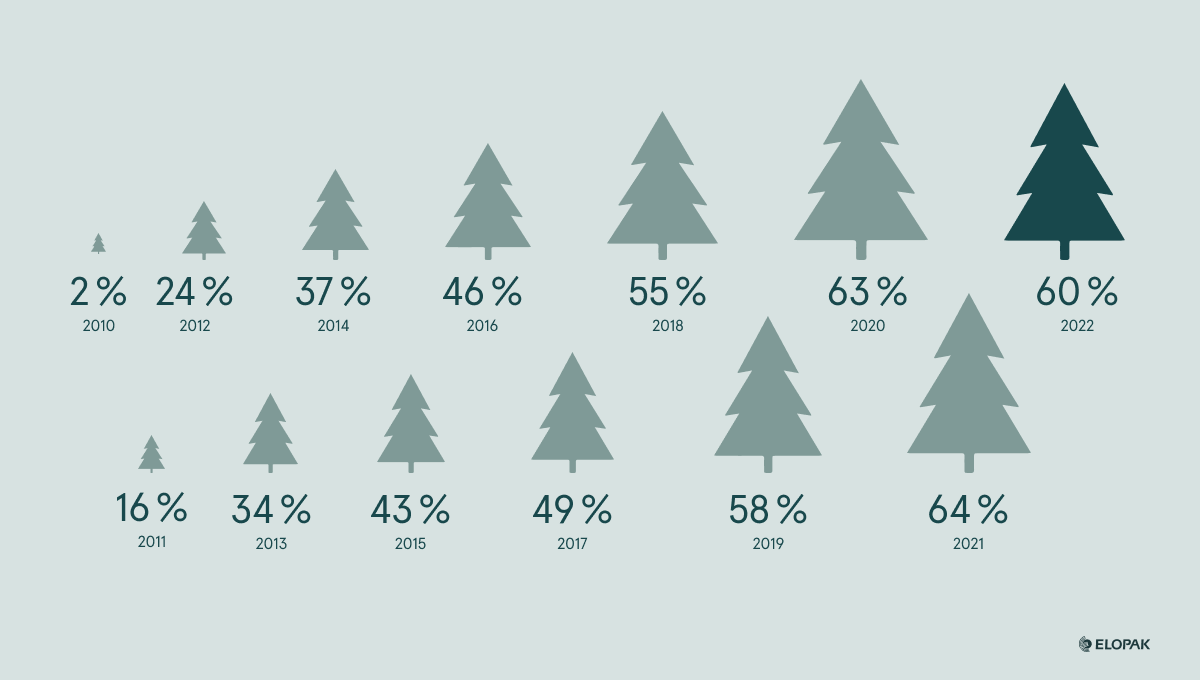
Fossil-free – with certified renewable polymers
Since the launch of our first fully renewable carton in 2014, the share of cartons with renewable polymers in Europe has steadily increased, reaching 30% in 2022.
Our self-defined target is to reach 50% by 2025.
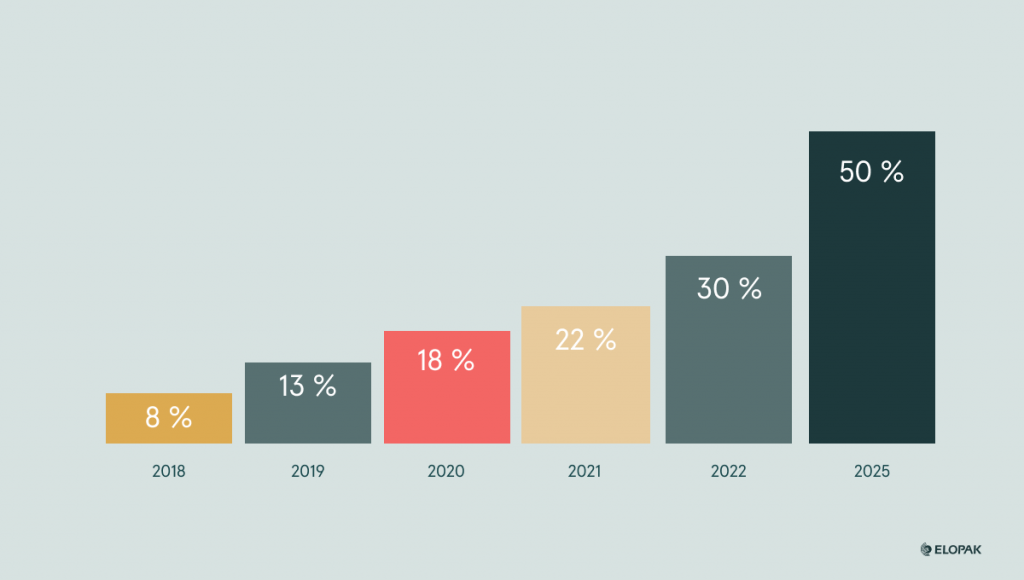
Net Zero
Elopak has worked systematically to reduce our greenhouse gas emissions since 2008, and we have publicly reported our emission data every year.
In 2016, we became a member of RE100 and have been a carbon neutral company since. In addition, we offer carbon neutral packaging to our customers. We are sourcing 100% renewable electricity throughout all our sites.
Elopak was one of the first non-pilot companies to have its near- and long-term emission reduction targets verified since the launch of the Science Based Targets initiative (SBTi) Net-Zero Standard in October 2021.
Carbon neutral
Elopak has been a carbon neutral company since 2016. Residual emissions, which are hard to abate, are offset through reductions outside of our own value chain. Examples include emissions from the transport of raw materials and finished goods, as well as emissions from business travel.
In order to net out our emissions, Elopak supports projects outside of the value chain that can provide third-party verified carbon emission reduction credits. In doing so, we are contributing not only to reduced emissions, but also facilitating positive effects on local livelihoods and the environment.
By widening this approach, we can offer carbon neutral packaging to our customers. In fact, we were first to offer carbon neutral cartons for beverages and liquid foods.
More than 303,800 tonnes of CO2e
have been compensated through the first five years of Elopak's Carbon Neutral Programme.
Building the road to 2030 with Science Based Targets
In 2019, we were one of the first companies to commit to the 1.5° goal of the Science Based Targets initiative (SBTi). In 2021, Elopak took part in the Net-Zero Road Test with 80 other companies, and during that process updated our near-term targets in line with the new standard. In 2022, we had our net zero targets approved. In 2022, we had our net zero targets approved. The goal is to reduce the absolute scope 1 and 2 GHG emissions by 42% by 2030 from a 2020 base year. In addition, we pledge to continue sourcing 100% renewable electricity. The scope 3 GHG emissions will be reduced by 25% by 2030 from a 2020 base year.
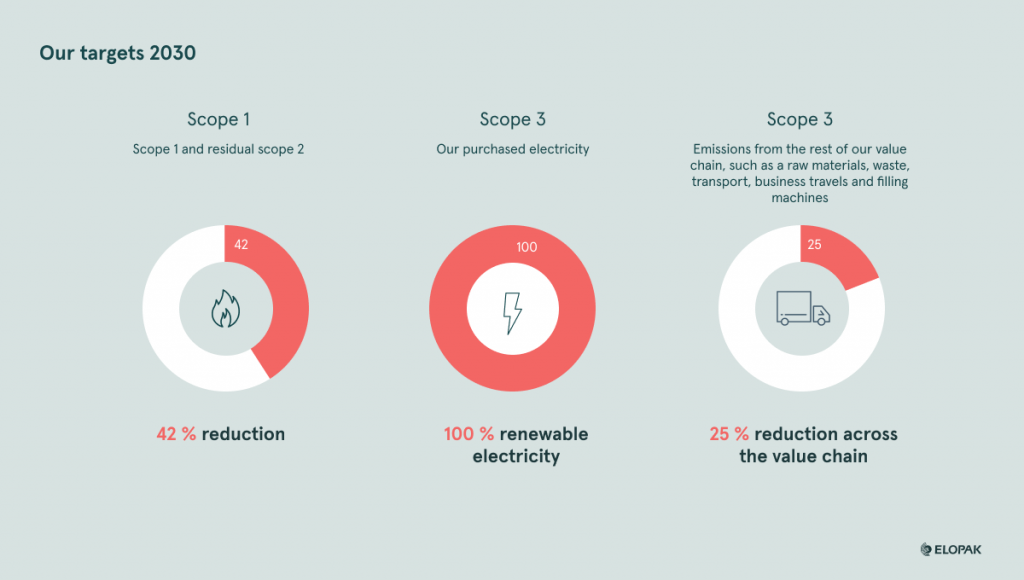
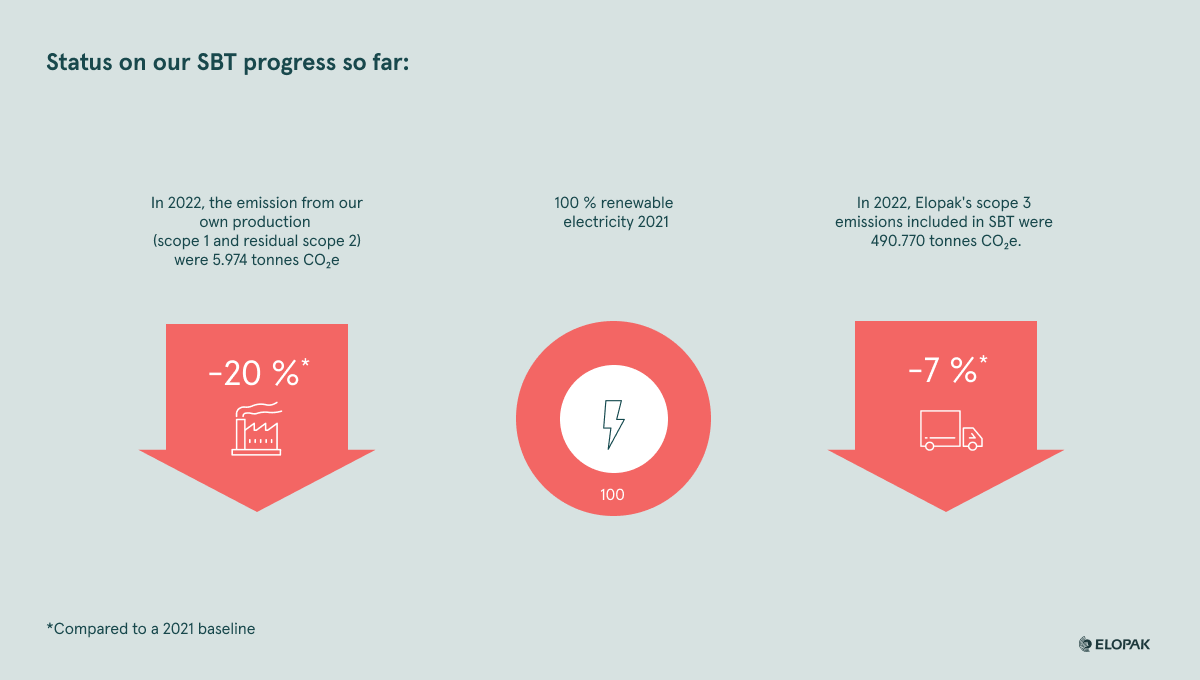
Recycling and circular economy
Elopak cartons are recyclable with existing technology. There are capacities in about 20 paper mills across Europe.
Elopak supports requirements for recyclability and circularity, which are evident in regulatory developments all over the world and particularly in Europe.
We are a member of multiple associations and industry partnerships to support the continued improvement of the collection, sorting and recycling infrastructure for our paper-based cartons.
Recycling
Our cartons contain fibres of very high quality that can be recycled up to seven times. It is our goal to make national collection and recycling facilities more widely available and easily accessible, so that more people can recycle. Therefore, Elopak works together with industry peers to increase and strengthen the collection and recycling of cartons across our markets.
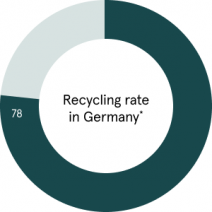
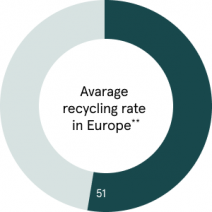
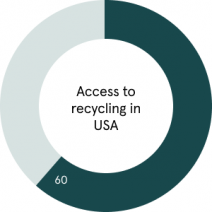
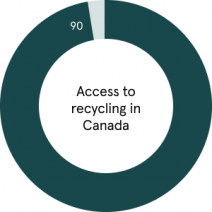
*Latest figures from 2020, published by the Federal Environmental Agency
**Latest figure from 2019 (using applicable calculation method at the time)
**Latest figure from 2019 (using applicable calculation method at the time)
Overview on beverage carton recycling
By 2030, on average 70% of all beverage cartons are to be recycled in the EU and in Canada .
Both the private sector (e.g. in Italy, the Netherlands and the Czech Republic) and the beverage carton industry have invested heavily in the recycling of the paper as well as the non-paper fraction of beverage cartons.
Examples are the PolyAl recycling plants by Palurec GmbH in Germany and Recon Polymers in the Netherlands.
Examples are the PolyAl recycling plants by Palurec GmbH in Germany and Recon Polymers in the Netherlands.
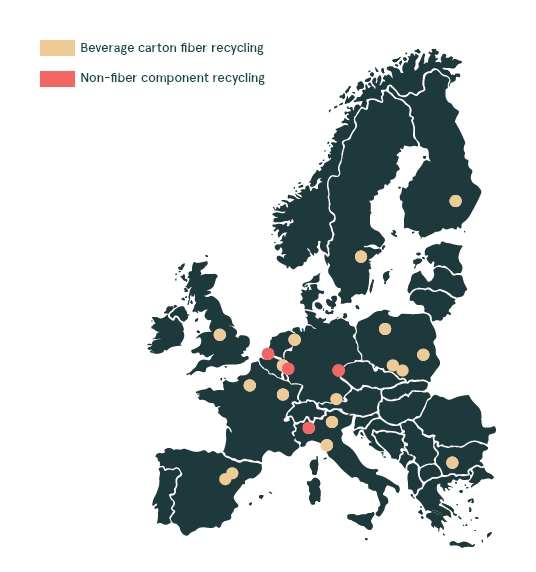
Don't miss out on any news and stay up to date with our newsletter. Subscribe here:
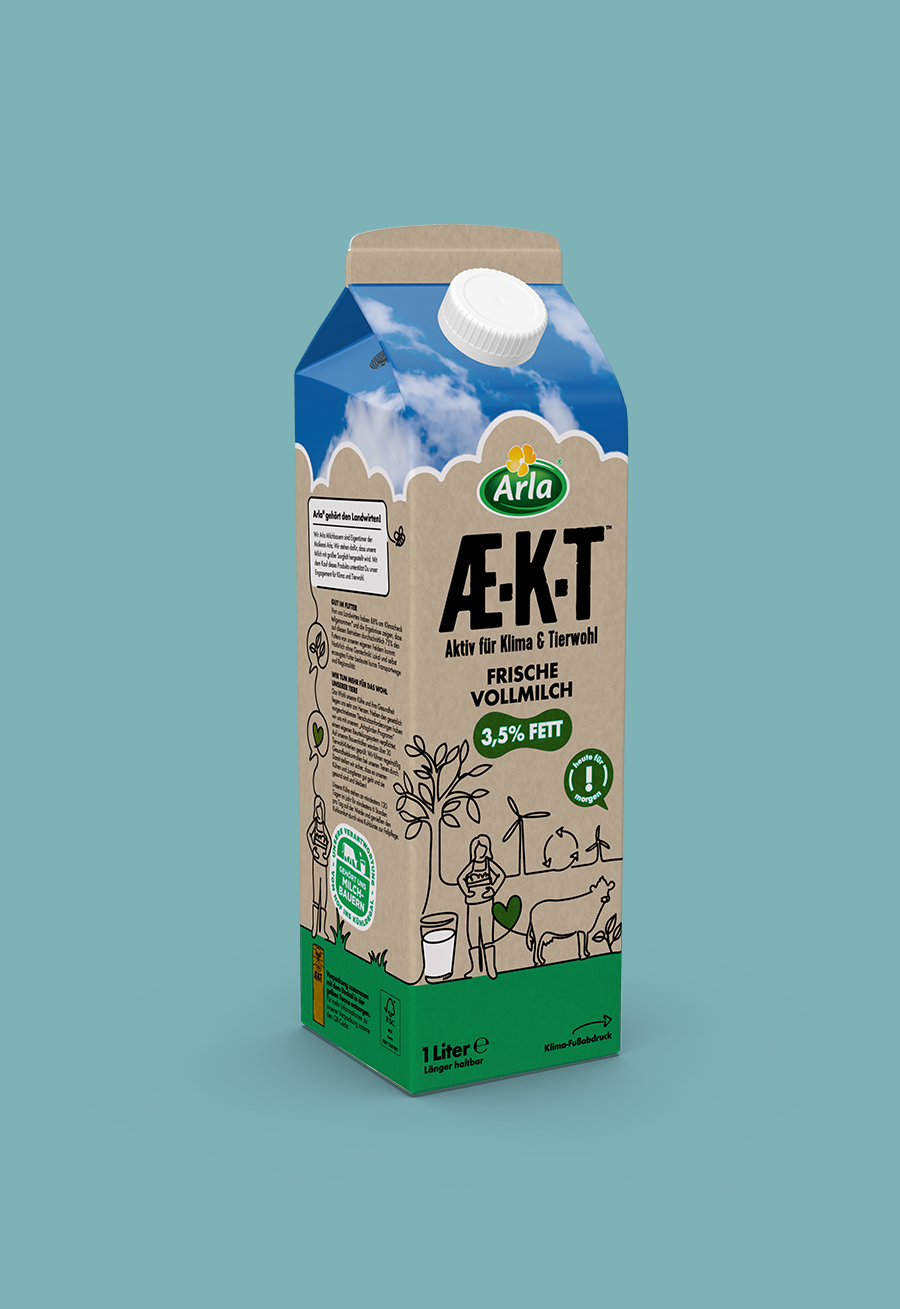
Arla Germany
Produkt:
The dairy cooperative Arla is launching a new milk brand under the name Arla Æ.K.T® that stands for climate protection and animal welfare. The milk is packaged in our particularly sustainable natural brown 1 litre Pure-Pak® Sense cartons.
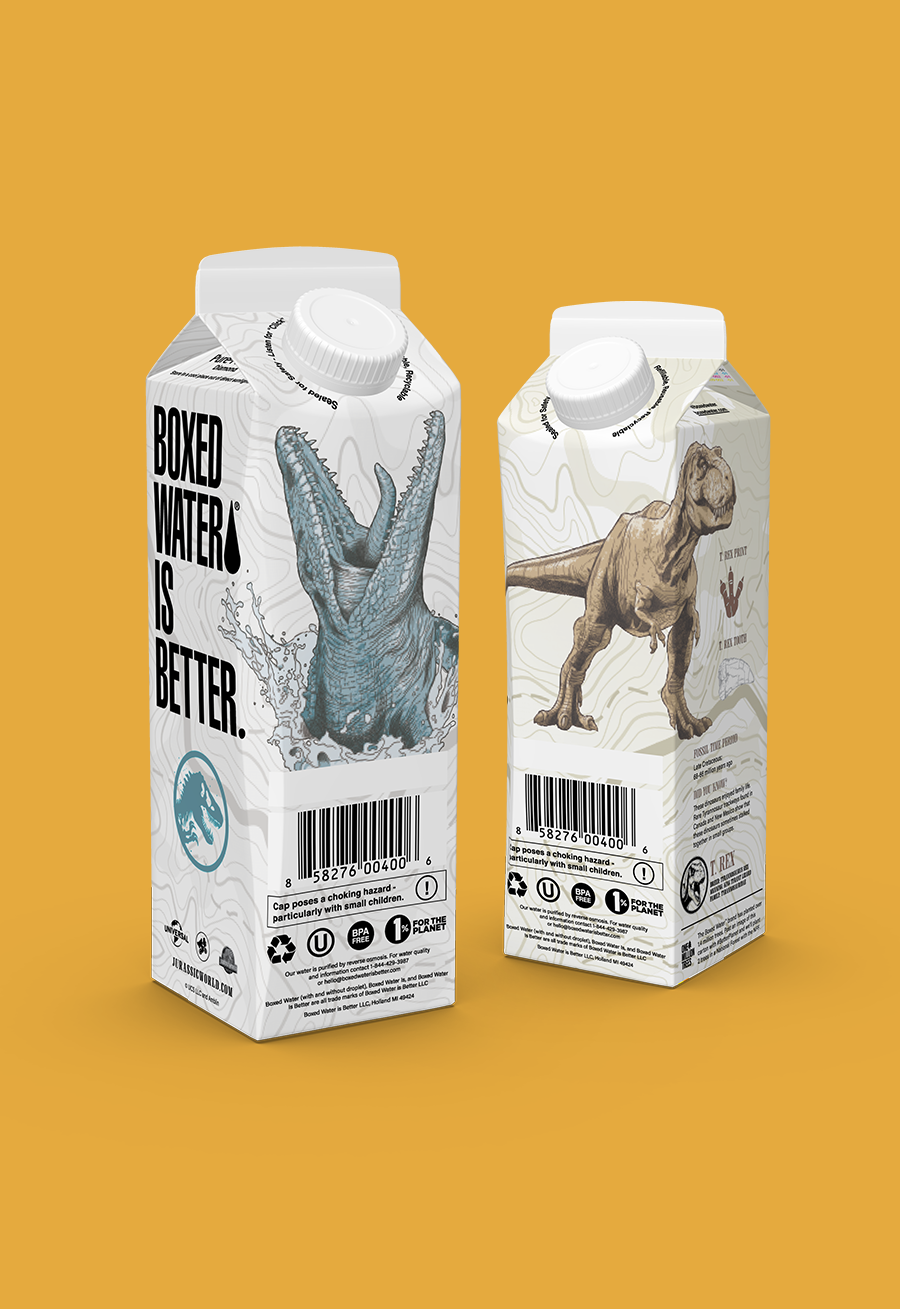
Boxed Water™ USA
Produkt:
Boxed Water™ has teamed up with Universal to create exclusive new designs for our 500ml Pure-Pak® mini cartons. They feature the popular dinosaurs from the Jurassic World universe – a real eye-catcher.
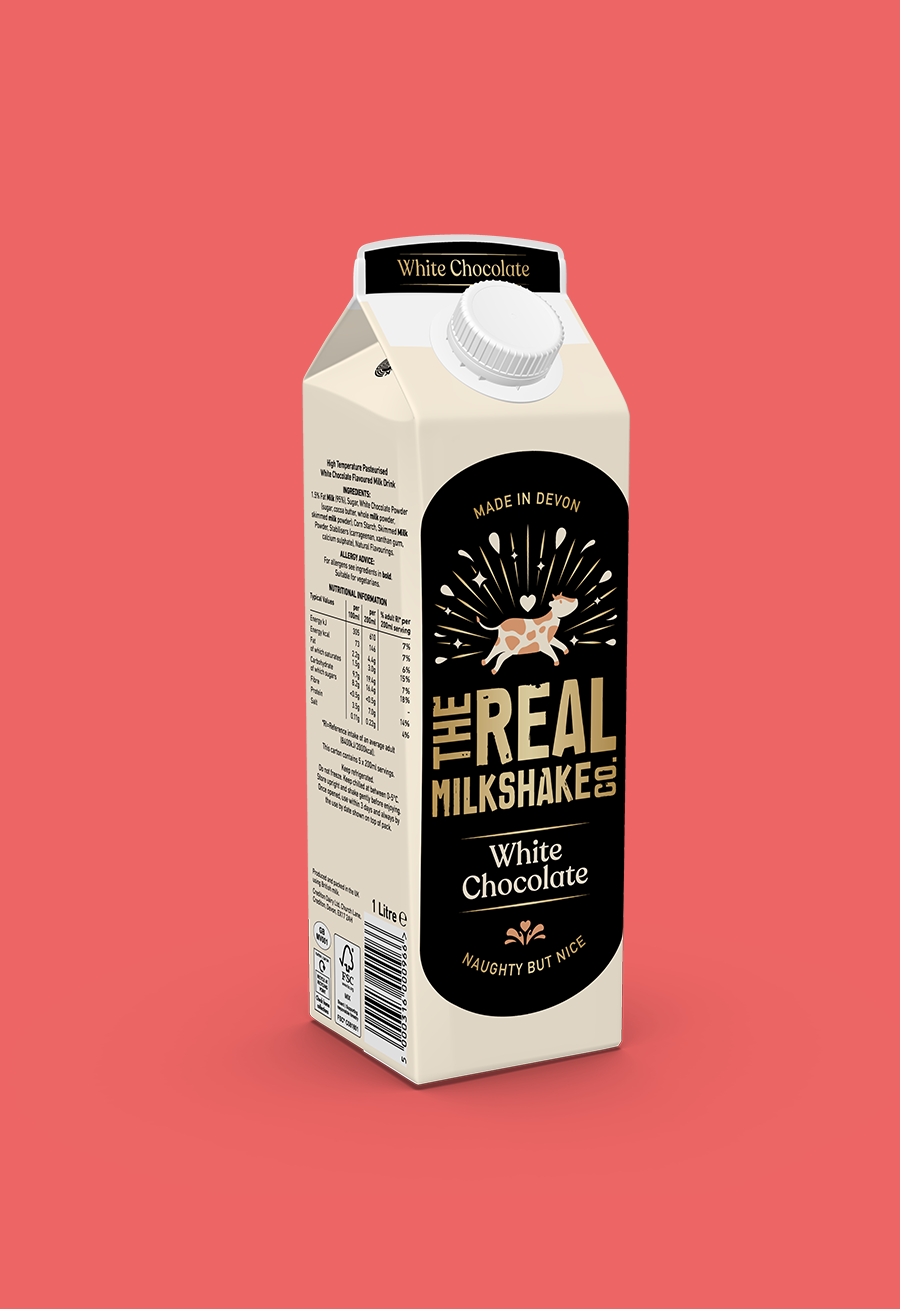
The Real Milkshake UK
Produkt:
By switching from our Pure-Pak® Classic to Pure-Pak® Sense Aseptic cartons, The Real Milkshake Company can offer its delicious, local milkshakes in an even more sustainable way. The carton contains 70 per cent less plastic than a standard plastic milk bottle of comparable size.